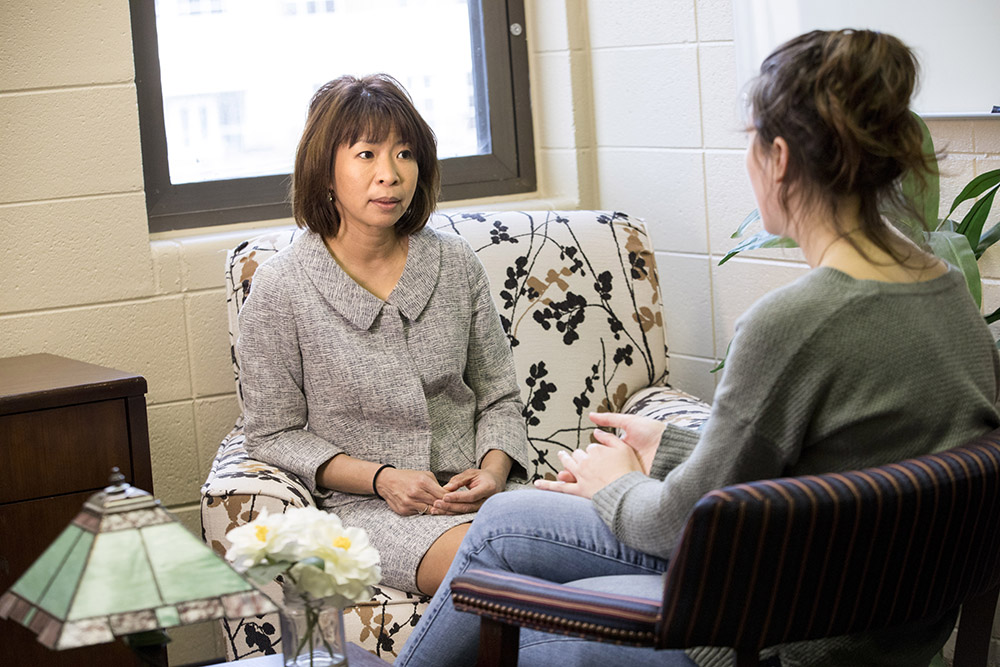In 2017, with about 2.1 million people in the United States suffering from substance use disorders, the U.S. Department of Health and Human Services declared a public health emergency to address the nation’s growing opioid epidemic.
As part of a new initiative called the Five-Point Strategy, the U.S. Health Resources & Services Administration (HRSA) recently awarded nearly $400 million to combat the opioid crisis, including a $1.4 million grant to University of Georgia researchers who will work to enhance community-based training for students preparing to become behavioral health professionals focused on opioid and substance use disorders.
UGA’s award will bring an interdisciplinary team of researchers together from the College of Education, the School of Social Work and the College of Public Health to grow the state’s opioid-related behavioral health workforce as part of HRSA’s Opioid Workforce Expansion Program. Over the course of three years, the team will train about 100 graduate students to help increase mental and behavioral health services in Georgia and beyond.
“What excites me is that we’ll be able to support and strengthen our training in evidence-based treatments for opioid and substance use disorders for our graduate students, while also providing prevention education to the community,” said Bernadette Heckman, principal investigator of the grant and professor in the College of Education’s department of counseling and human development services. “Students are eager to learn about different kinds of approaches in therapy, which we hope in the long term can fill in some of the gaps in mental health care in our community.”
Funds from the award will provide a yearlong stipend of $10,000 to students pursuing master’s degrees in social work and mental health counseling and $28,000 to doctoral students in counseling psychology. In addition to receiving professional training across multiple disciplines, students will learn a variety of integrated treatment approaches to prevent and treat opioid and substance use disorders, including medication-assisted treatments that combine behavioral therapy with medication, as well as cognitive processing therapy, interpersonal therapy, motivational enhancement and more.
Graduate students in their second year of training will engage in service-learning experiential training at hospitals and health centers across Georgia’s Public Health District 10, which includes Clarke, Barrow, Oconee, Greene, Oglethorpe, Madison, Walton, Morgan, Jackson and Elbert counties.
“Health District 10, which is the focus of our outreach, is a highly diverse area,” said Heckman. “It’s also really underserved—most of the counties here are considered mental health shortage areas, and we’re seeing that it’s becoming a problem.”
In fact, 79 drug overdoses occurred in the district in 2017—a 23% increase over just one year. Additionally, an analysis of the district found that women; white, non-Hispanic people; people who were admitted to hospitals prior to death; and people who used other non-opioid-related drugs prior to death were over-represented in the number of opioid-related deaths in the region. The data also suggests that a disproportionate number of opioid-related deaths involve individuals who—prior to their fatal overdoses—entered into health care facilities for other reasons.
Orion Mowbray, associate professor in the School of Social Work and co-principal investigator of the grant, will teach and train HRSA awardees along with Heckman to address the growing number of fatalities related to opioids and increase the number of professionals in the area who can provide effective substance use treatments.
“When we talk about effective treatment in the present day, we mean a continuum of approaches ranging from enhanced screening and detection to medication assistance to relapse prevention,” said Mowbray. “The most important feature of this award is that students will get advanced training in these topics, so they may better address these gaps in behavioral health in our area.”
Other researchers on the grant include College of Education professor Georgia Calhoun in the department of counseling and human development services and College of Public Health senior associate dean for research and faculty affairs Timothy Heckman.
“I think part of the issue is that integration of care is not where it needs to be for doctors,” said Heckman. “If they can’t refer patients to mental health providers to help with the treatment, all they’re left with is one thing—all they can do is prescribe. We know the best way to treat someone with an opioid or addiction problem is to combine treatments like therapy and medication. We’ll be training our students to do that.”


